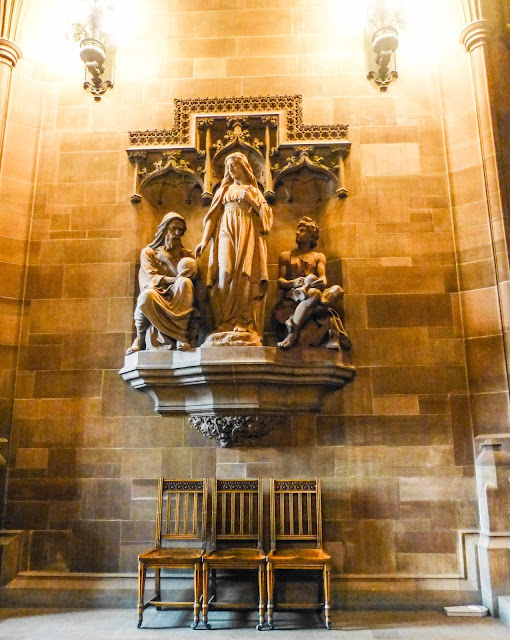The John Rylands Library in Manchester, is a late Victorian neo-Gothic building which opened to the public in 1900. It was founded by Enriqueta Augustina Rylands in memory of her husband, John Rylands, the English entrepreneur and philanthropist. He was the owner of the largest textile manufacturing concern in the United Kingdom, and Manchester's first multi-millionaire.
Almost Cathedral like in appearance, the library houses an unrivalled collection of books. Amongst many others are Dickens’s novels in their original wrappers, a first edition of Shakespeare’s Sonnets, the second largest collection of works by the pioneering printer William Caxton and personal papers of theologian John Wesley, scientist John Dalton and novelist Elizabeth Gaskell.
The main reading room was built thirty feet above street level in order to reduce noise from the horse-drawn traffic outside on the busy thoroughfare of Deansgate. and on each side are alcoves for personal study. Lit by ornate bay windows, the alcoves were intended for private study.
At opposite ends of the reading room are two large stained glass windows featuring portraits of religious and secular figures, by designer Charles E. Kempe.
 | |
| Statue of John Rylands |


The bookcases were equipped with complicated locks and seals to protect
their contents.
The entrance hall is dominated by a group of statues entitled 'Theology
directing the labours of Science and Art' by sculptor John Cassidy. These
statues symbolized Mrs Rylands' belief in the superiority of Theology to Science and Art.




























.jpg)


